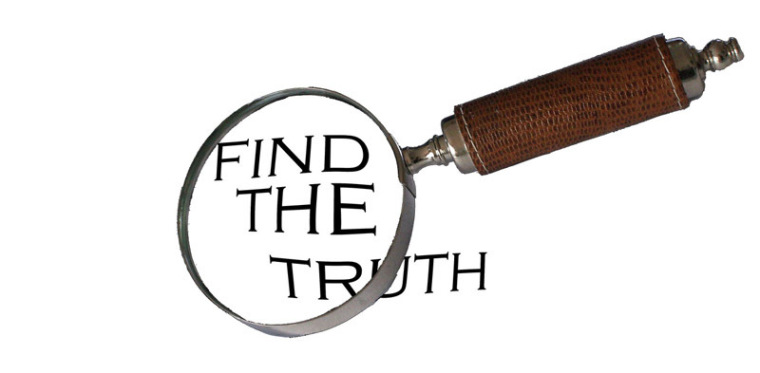
Every day we exercise faith based on evidence. We sit on a chair without checking its structural integrity. We exercise faith in the person who made the chair and the evidence that other people have sat on it.
We cross intersections when the lights are green because we have faith that cars coming in the other direction will be facing a red light and they will stop. Our previous experiences provide evidence that this is the case.
We buy food from supermarkets because we have faith in our country’s food safety standards and past evidence that our food is safe.
Likewise, God doesn’t expect people to exercise spiritual faith without evidence. I often find Christians won’t consider the evidence that God has given us. Some view it as a lack of faith. But this isn’t God’s view.
Check the evidence
Jesus told his followers, “Don’t believe me unless I carry out my Father’s work. But if I do his work, believe in the evidence of the miraculous works I have done, even if you don’t believe me” (John chapter 10 verses 37–38 see also John chapter 14 verse 11).
Jesus encouraged his followers to have faith based on the evidence of his miraculous works.
Similarly, Luke assured Theophilus that he had carefully investigated the evidence so Theophilus could be certain of the truth.
“Many people have set out to write accounts about the events that have been fulfilled among us. They used the eyewitness reports circulating among us from the early disciples. Having carefully investigated everything from the beginning, I also have decided to write an accurate account for you, most honourable Theophilus, so you can be certain of the truth” (Luke chapter 1 verses 1–4).
Jesus mentions evidence, Luke mentions the strength of eyewitness reports.
Even today in our courts of law we rely on eyewitnesses. The court system would be paralysed if it could only use scientific evidence. In a car accident where there is evidence of tyre marks and car parts strewn across the road, police will still call for eyewitnesses to determine the timing of events because the scientific evidence isn’t enough.
Historical evidence
Christianity is the only religion based on historical events and relies heavily on eyewitness accounts. And not just one or two, but hundreds.
“He [Jesus] was buried, and he was raised from the dead on the third day, just as the Scriptures said. He was seen by Peter and then by the Twelve.After that, he was seen by more than 500 of his followers at one time, most of whom are still alive, though some have died” (1 Corinthians chapter 15 verses 4-6).
Paul wrote this to the Corinthians within living memory of the events taking place. Christianity would have been discredited if Paul’s descriptions were fictitious.
There are also historical accounts that were written at the time by non-believers who mention Jesus’ life and death. The early church grew quickly because of the eyewitness reports that stated Jesus had risen from the dead.
Rahab
The best example we have in the Bible of someone acting on physical evidence and eyewitness accounts is Rahab. She’s an odd choice.
She wasn’t an Israelite. She lived in a pagan city and worked as a prostitute. But Rahab knew two historical facts. The Israelites left Egypt when their God dried up the Red Sea and second, the Israelites defeated two Amorite kings and their people (Joshua chapter 2 verse 10).
This wasn’t a lot of information to risk your life on, but Rahab knew there was something special about God’s people. So when two Jewish spies turned up on Rahab’s doorstep, she asked them to protect her and her family when their army attacked Jericho because she believed the God of the Israelites would give their city and land to his people.
James tells us that her faith produced good works.
“Rahab … was shown to be right with God by her actions when she hid those messengers and sent them safely away by a different road” (James chapter 2 verse 25).
The book of James is sometimes criticised for putting too much emphasis on doing good works, and not enough on having faith. But James knew that many who professed faith intellectually don’t act according to their professed beliefs.
Act on your beliefs
If our neighbours rang us and told us they could see our house was on fire but we continued reading the paper or watching television, people would conclude that we didn’t believe our neighbours because we didn’t act on their words.
If faith doesn’t move us to take action, then it isn’t faith which is why Rahab is such a good example of faith. She acted on what she believed.
The illustration is told of five birds sitting on a telephone wire. Two of the birds decided to fly away. How many birds were left sitting on the wire?
There were still five. Two made the decision to leave but they didn’t follow through and take action.
When God looked into Rahab’s heart, he looked beyond outward appearances and saw a mustard seed of faith. He presented her with an opportunity and she acted on her faith which was built on the foundation of historical evidence.
May we too, act on what we believe.

Susan Barnes has been involved in pastoral ministry for over twenty years with her husband, Ross. They are now semi-retired and enjoy supporting a number of churches in north-east Victoria. You can find more of Susan’s articles at: https://www.pressserviceinternational.org/susan-barnes.html